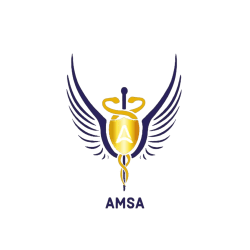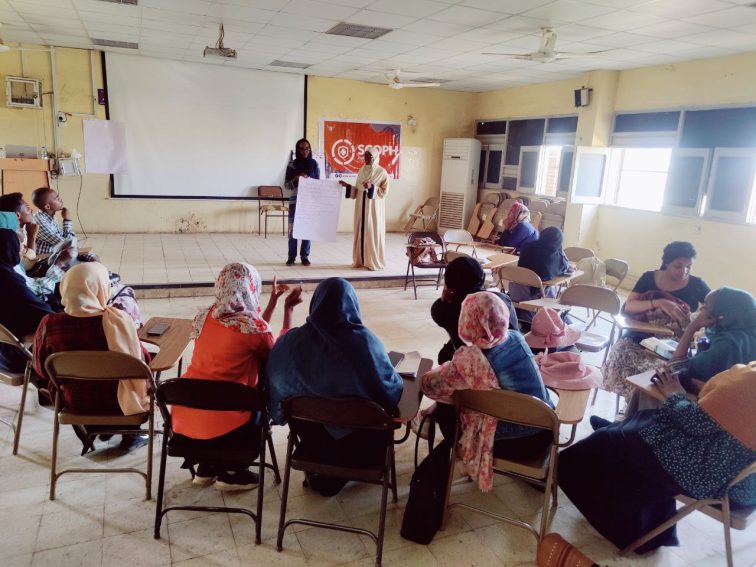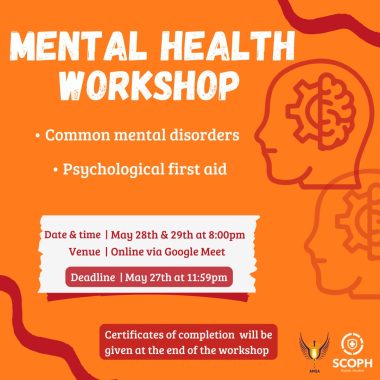Medical Force During Conflict: Sudan, Ahfad University for Women (Sudan)
 Medical Force During Conflict is the First Place Winner of the 2025 MacJannet Prize for Global Citizenship. The program was established in 2023 with the outbreak of war in Sudan by the Medical Students’ Association of Ahfad University for Women. Recognizing the urgent need for mental and psychological health interventions, the Medical Force During Conflict program aimed to equip medical students with essential skills while also supporting the broader community. The focus has been on helping individuals (youth, women, men, and children) to build resilience and cope with the hardships and war-related trauma, offering mental and psychological support, and providing ways to assist those facing both mental and physical health challenges.
Medical Force During Conflict is the First Place Winner of the 2025 MacJannet Prize for Global Citizenship. The program was established in 2023 with the outbreak of war in Sudan by the Medical Students’ Association of Ahfad University for Women. Recognizing the urgent need for mental and psychological health interventions, the Medical Force During Conflict program aimed to equip medical students with essential skills while also supporting the broader community. The focus has been on helping individuals (youth, women, men, and children) to build resilience and cope with the hardships and war-related trauma, offering mental and psychological support, and providing ways to assist those facing both mental and physical health challenges.
The program is student-led and run by medical students from different academic years, with guidance from faculty members and collaborations with local organizations. Faculty support enriches activities by providing expertise, mentorship, and connections to professionals, while external partnerships strengthen the program’s impact.
“We are truly overjoyed to receive this year’s first-place MacJannet Prize—a dream finally realized amidst Sudan’s ongoing challenges and, more importantly, a shining beacon of hope for our nation. This remarkable honor not only celebrates our team’s unwavering dedication and shared vision but also powerfully symbolizes our solidarity with fellow Sudanese who continue to face hardship. As we accept this award, we pledge wholeheartedly to leverage its prestige to amplify support and direct vital resources to the communities that need them most. Our commitment to innovation and compassion has never been stronger, and we remain determined to turn adversity into opportunity. We extend our deepest gratitude to the MacJannet Foundation for placing their trust in our mission; their belief in us ignites our resolve to transform despair into empowerment. United in purpose and fueled by this recognition, we will continue to light the way toward a brighter, more hopeful future—this prize renews our collective hope and energizes every step of our journey ahead.”
– Mishkat Abdelgani, AMSA President

The main goal is to empower students to be agents of change in public health and human rights. The students strive to build student capacity, raise awareness, and advocate for health equity, ensuring that their initiatives contribute to sustainable and community-driven healthcare solutions.
The ongoing conflict has displaced millions, caused widespread food insecurity, and left health systems on the brink of collapse. This has left millions without access to essential services, leading to disease outbreaks and untreated injuries. Mental health has been severely impacted, with displaced individuals experiencing trauma from violence, loss, and displacement. Gender-based violence has surged, with reports of sexual violence, exploitation, and abuse. This program came to encompass major public health concerns, human rights, and sexual and reproductive health and rights (SRHR). Given the war situation, the activities are specifically tailored to urgent community needs, including mental health and trauma, psychological first aid, the burden of chronic illness, disease outbreaks in refugee camps, and gender-based violence (GBV) in conflict settings.

These issues were identified through direct community engagement, and reports from humanitarian organizations working in crisis-affected areas. The war has led to mass displacement, exposing populations to psychological distress, inadequate healthcare access, and increased vulnerability to communicable diseases. Quantitative data highlight rising cases of PTSD, depression, and anxiety among displaced individuals, while qualitative insights from local healthcare workers and community leaders confirm the pressing need for interventions.
Community involvement is central to this program design. The students consult with local organizations, health professionals, and affected populations to shape program goals. By incorporating community perspectives and cultural considerations, students ensure that interventions are practical, sustainable, and impactful.
Historically, conflict zones have demonstrated high rates of mental health disorders, neglected chronic illnesses, and increased GBV incidents, reinforcing the need for targeted programs. Lessons from previous crises guide our approach in addressing both immediate and long-term public health challenges.